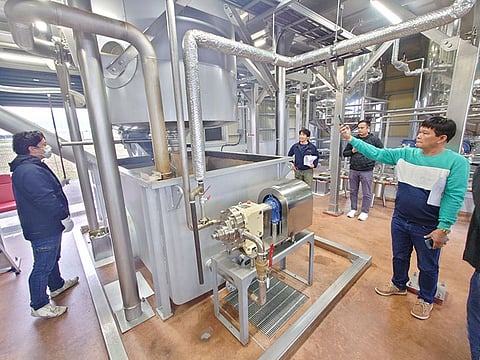

The Japanese government and the Philippines are exploring cooking oil waste further to generate energy for various industries.
The Japan International Cooperation Agency or JICA said officials of Boracay Island in the municipality of Malay, Aklan and representatives from civic groups underwent training with Japan's Kanazawa Engineering Systems Inc. or KES.
JICA said participants, for example, discussed ways to use recycled cooking oil for vegetable farming and soaps.
"I saw for myself the integrated recycling method in Japan where waste cooking oil, food wastes, and other recyclables for a business recycling model," Dante Pagsuguiron, Malay's council chairman for laws, said.
"This has potential in places like Boracay so we can alleviate the burden on our sanitary landfills and promote sustainable tourism," he added.
Green collaboration
The Malay government and KES have been collaborating for various green projects since 2018 under its Renergy Project and JICA's Sustainable Development Goals Business Supporting Surveys program.
The JICA said trainees visited facilities of several firms in Shi plants in Shiga Prefecture.
"For example, at Yamada-Yushi Facility in Shiga Prefecture, we saw how a company collects and recycles waste cooking oil and sells it as recycled fuel to different industries," Virgilio Sacdalan, director of Boracay Foundation Inc., said.
Since the partnership between KES and the Malay government started, recycled cooking oil has been used by e-tricycles drivers to carry tourists around Boracay Island.
"Just like what Boracay is trying to achieve, Higashitomi residents practice recycling to protect Lake Biwa and preserve its natural resources," the JICA said.
"The delegation also met with Japanese companies and associations to learn how to reuse cooking oil for industrial inks, lubricants and recycled fuels," the foreign organization added.
Studies show operation costs on power of businesses can be reduced to a fraction of the traditional diesel with recycled cooking oil and renewable fuels.
Their data also reveals such energy sources reduce carbon emissions by 75 to 90 percent.
